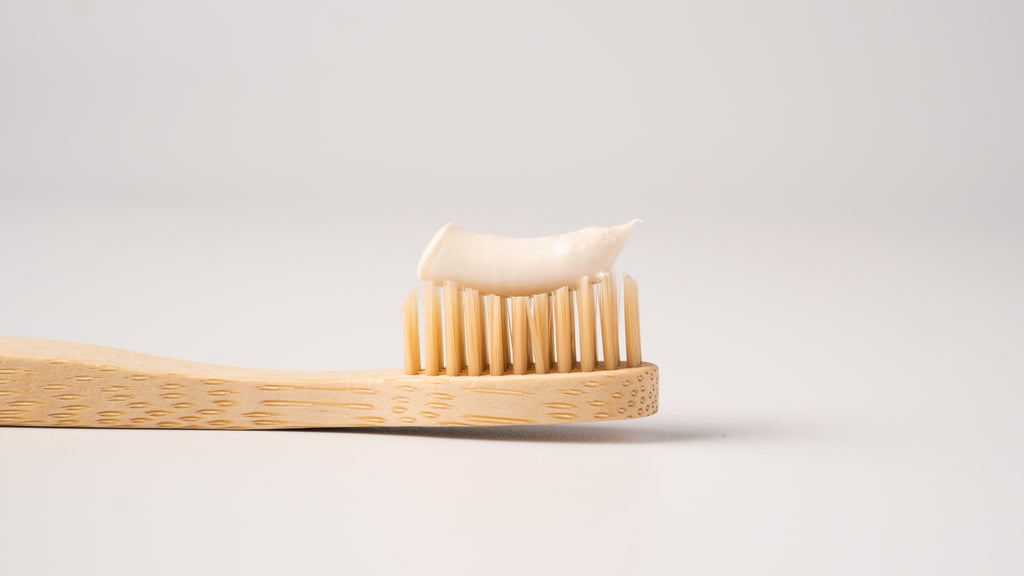Naturally healthy
What are environmental toxins and how do they affect our health
- Skin (radiation, hygiene and cosmetic products)
- Respiratory tract (breathing air, cigarette smoke)
- Oral mucosa (amalgam fillings)
- Digestive tract (food, medication)
Glyphosate does not just fight weeds
The consequences of glyphosate for human health have been discussed for a long time. In the 20 years from 1994 to 2014, production of the world's most widely used weed killer increased 14-fold. However, the 850,000 tons per year does not yet represent the end point, as observers expect the glyphosate market to grow strongly in the coming years. The herbicide that kills every non-GMO plant is a threat not only to biodiversity but also to the human body.

Glyphosate is everywhere. Even in the urine of people living in urban space who have no connection to agriculture, the herbicide can be detected in around 70 percent of the samples. An in vitro study from the University of Copenhagen suggests that the poison also crosses the placental barrier. Small amounts of glyphosate enter the child's bloodstream through the mother's bloodstream and can thus negatively affect the child's hormonal system. A study on young rats suggests irreversible consequences for pregnant women. Male animals exposed to pesticides containing glyphosate were characterized by low testosterone levels and low sperm production. An inhibitory effect on estrogen production was demonstrated in female animals.
Glyphosate also represents a major challenge for the sensitive bacterial ecosystem of the intestine. This system plays a role in human metabolism that can hardly be underestimated. The problem is that the plant poison settles permanently in the body, be it in the bones, liver or intestines. Disturbances in the intestinal flora promote the development of many diseases, including Alzheimer's and cancer. The WHO Agency for Cancer Research rates glyphosate as “probably carcinogenic.”
Dangerous in large doses: fluoride
Another common environmental toxin is fluoride, which is particularly found in fluoridated salt. Whether fluorides develop their toxic effects depends primarily on the dosage. In countries where people regularly drink fluoridated drinking water, bone problems are widespread, such as in China and India. It's true that fluoride helps increase bone density. However, this causes their natural elasticity to suffer, meaning they become easily brittle. Neurodegenerative diseases such as Parkinson's or dementia can also be traced back to fluoride overdoses. Fluoride affects the cells of the central nervous system and contributes to reduced learning ability, poorer memory and reduced intelligence.

Bad for the brain
It is not difficult to detect a cocktail of chemicals in pregnant women, which is why children are born poisoned. More than 100 industrial chemicals can be detected in the blood of newborns, but breast milk is also full of toxins. The most important part of brain development occurs in the womb. If this process is disrupted, it can later manifest itself in a variety of developmental disorders. Many may be irreversible since environmental toxins cause irreversible damage. They change the body permanently, which is why they are also called body transformers.
Heavy metals such as lead, arsenic and mercury are known to impair brain development. Other substances promote the development of ADHD and depression and make emotional regulation more difficult. According to researchers, if children come into contact with phthalates before birth, this can lead to a significant reduction in intelligence, but also to deficits in working memory and thinking.
Toxins promote obesity
A wealth of studies suggest that environmental toxins not only promote the development of obesity, but also make losing weight more difficult. Basically, the more pollutants can be detected in someone's body, the more they tend to be overweight. The effects of these poisons are very different. Some cause the number of fat cells to change, while others affect the feeling of satiety. However, the functioning of the thyroid or the intestinal flora can also be affected. For example, some pesticides inhibit the protein UCP1, which regulates human energy consumption.

These effects are particularly dangerous for children, as there is much to suggest that the toxins can have irreversible consequences for their metabolism. For them, this means having to struggle with being overweight right from the start of their lives. These changes can even influence the genetic material, meaning that the following generation will most likely also have to struggle with weight problems.
How toxins affect the intestines and thus the immune system
The intestines have to deal with a variety of toxins. These include, for example, pesticides that not only attack insects, but also pose a danger to the beneficial intestinal bacteria. This can severely affect gastrointestinal function and weaken the immune system. Probiotic intestinal bacteria also play an important role in preventing the intestinal lining from becoming inflamed. Heavy metals such as cadmium and lead can limit their occurrence. If an infection occurs, for example due to mold, toxic metabolic products are created that remain in the intestine for a long time and may permanently disrupt its function.

Ideally, the intestinal defense cells protect against pathogens. In autoimmune diseases such as arthritis or multiple sclerosis, however, they attack the body's own tissue. Children are increasingly suffering from them. An intestinal flora that has to deal with many environmental toxins not only protects less against autoimmune processes, but even promotes them. By the way: Chronic constipation can also be an indication that the intestines are exposed to a high level of toxins.
Why it can be worthwhile for you to detoxify your body
Normally, the body does the detoxification itself. However, due to the increasing exposure to a wide variety of harmful substances, the important detoxification organs liver, kidneys and intestines are becoming increasingly overwhelmed. By detoxifying yourself, you make their job easier. However, the list of advantages is much longer.
Many symptoms of chronic illnesses can be reduced through detoxification. This not only has an anti-inflammatory effect and reduces pain, but also strengthens the immune system because the body has more resources to fight viruses and bacteria. Anyone struggling with weight problems can also benefit from the change. Essentially, a detox has the potential to make you feel more focused, more alive, and more alert. Fewer pollutants also help slow cell breakdown, which can lead to better skin.

Central to detoxification: changing eating habits
Detoxification has several facets. An important first step for you is to examine your eating habits, as we absorb a large proportion of environmental toxins through food. In principle, the better an active ingredient or nutrient is for detoxification, the better its bioavailability. Bioavailability refers to the body's ability to absorb and process a substance. It increases the fewer pollutants a food contains.
Choosing appropriate foods is a key in the detoxification process. Ideally, you avoid products that contain sugar, caffeine, alcohol or wheat flour and instead increase your intake of fruit, vegetables, seeds and whole grain products. Fermented foods such as kimchi and sauerkraut support the functioning of the intestines, but wild herbs and omega-3 oils are also suitable.
When changing your diet, you should of course make sure that the food contains as few harmful substances as possible. Organically grown products generally contain fewer environmental toxins, such as pesticides. Another tip is to avoid industrially processed foods and instead rely on unprocessed and fresh food from the region. You should avoid plastic packaging if possible.
In addition to a conscious diet, high-quality nutritional supplements can also support detoxification. It is important that each individual ingredient has been thoroughly tested and meets certain quality standards. In this way, you can be sure that the products are actually free of harmful substances and synthetically produced additives.

Why changing your diet is often not enough
In order to remove heavy metals, it is usually not enough to change your diet. Special elimination treatments help, for example, to eliminate mercury compounds that are found in vaccines, disinfectants and medications. A common cause of poisoning is the mercury contained in amalgam fillings. Eliminating heavy metals often only makes sense after dental restoration has been carried out.Nothing to underestimate: everyday products
If you want to detoxify yourself, everyday products are another important point. It's worth taking a closer look at the ingredients in cosmetic and hygiene products such as toothpaste, creams, deodorants or sunscreens. For example, you should avoid products that contain parabens (the preservative is suspected of causing hormonal imbalance), phthalates (plasticizers), dyes and fragrances or formaldehyde (cause damage to the kidneys and liver).
Sources:
https://www.bund.net/umweltgifte/glyphosat/
https://www.scinexx.de/news/medizin/umweltgifte-verdummen-unsere-kinder/
https://www.zentrum-der-gesundheit.de/news/ernaehrung-news/general-ernaehrung/ueberweight-durch-shadstoffe
https://naturheilpraxis.de/2023/04/27/gesundheitliche-unternehmen-durch-umweltgifte-alarm-im-darm/
https://www.zentrum-der-gesundheit.de/bibliothek/koerper/darmflora-uebersicht/autoimmun Disease-darmflora-ia
https://www.zentrum-der-gesundheit.de/bibliothek/ratgeber/detox-uebersicht/giftlast-im-koerper
http://www. Schwermetallausleitung.at
https://cdn.shopify.com/s/files/1/0507/5854/9692/files/Flyer_-_Why_Entgiftung_so_important_ist_neu.pdf?v=1685087010
https://walgenbach-shop.com/pages/du-bist-nicht-krank-nur-vergiftet
https://www.meinkreis.at/oberoesterreich/c-gesundheit/haben-es-mit-tauschen-von-umweltgiften-zu-tun_a2121562
Medical Disclaimer:
The content offered here is intended exclusively for neutral information and general training. They do not represent a recommendation or promotion of the diagnostic methods, treatments or medicines described or mentioned. The text neither claims to be complete nor can the topicality, correctness and balance of the information presented be guaranteed. The text in no way replaces the professional advice of a doctor or pharmacist and it may not be used as a basis for independent diagnosis and the start, change or termination of treatment of diseases. If you have any health questions or complaints, always consult your trusted doctor! The authors assume no liability for any inconvenience or damage resulting from the application of the information presented here.










